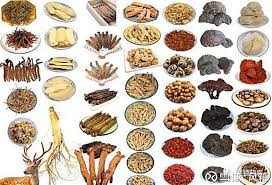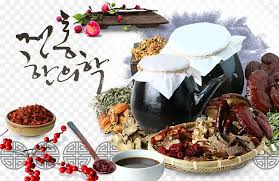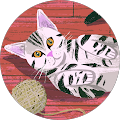Exploring the Wonders of Traditional Chinese Medicine (TCM)
Traditional Chinese Medicine, this terminnology can be short of TCM or Chinese Medicine, it Amidst the bustling world of modern healthcare, Traditional Chinese Medicine (TCM) stands as a timeless testament to the intricate relationship between human health and the natural world. With a history spanning thousands of years, TCM offers a holistic approach to wellness that has captivated minds and hearts across cultures.
At its core, TCM embodies a profound belief in balance and harmony. It views the body, mind, and spirit as interconnected elements, each influencing the others. This holistic perspective has guided TCM practitioners through the ages, seeking not only to treat symptoms but to address the root causes of illness.
Herbs, acupuncture, cupping, and qigong are just a few of the many facets that make up TCM. Chinese herbal medicine combines centuries-old wisdom with meticulous formulations to create remedies that address a wide array of health concerns. Acupuncture, a practice that involves the insertion of fine needles into specific points on the body, aims to restore the flow of vital energy (Qi) along meridians, fostering balance and alleviating discomfort.

TCM’s approach is not merely about curing illness; it’s about cultivating well-being. Prevention is a cornerstone of this ancient tradition. By aligning with the natural rhythms of the seasons and making lifestyle choices that honor our bodies, we can prevent imbalances from taking root.
What truly sets TCM apart is its adaptability. Over thousands of years, TCM has continually evolved, incorporating new insights while retaining its core principles. This adaptability has enabled TCM to bridge the gap between ancient wisdom and modern science, finding its place in the contemporary world.
As TCM gains recognition on the global stage, it’s important to approach it with an open mind and a willingness to learn. Its complex theories and practices may seem unfamiliar at first, but delving into the philosophy behind TCM can unveil a new way of perceiving health and wellness.
Traditional Chinese Medicine offers us a chance to reconnect with nature and rediscover the profound connections between our bodies and the world around us. By embracing the wisdom of the ancients, we embark on a journey towards a more holistic, balanced, and vibrant life.
Unveiling the Marvels of Botanic Medicine in Traditional Chinese Medicine
In the intricate tapestry of Traditional Chinese Medicine (TCM), the use of botanical ingredients holds a cherished place. From the tranquil gardens of ancient China to the bustling apothecaries of today, botanical medicine remains a cornerstone of TCM’s holistic approach to healing.
At the heart of Traditional Chinese Medicine (TCM)’s botanical medicine lies a deep reverence for the plant kingdom. Over centuries, Chinese herbalists have carefully observed the unique properties of various plants, flowers, roots, and leaves. These observations have been woven into a vast tapestry of knowledge that forms the basis of Traditional Chinese Medicine (TCM)’s herbal formulations.

The philosophy behind botanical medicine in TCM revolves around the concept of balance and harmony. Just as the natural world thrives when ecosystems are in equilibrium, so too does the human body flourish when its internal energies are balanced. Botanical remedies are tailored to restore this equilibrium, nurturing the body’s inherent ability to heal itself.
From ginseng to astragalus, chrysanthemum to honeysuckle, each botanical ingredient has a distinct role to play. The synergy of various herbs within a formula creates a harmonious blend, addressing not only symptoms but the underlying imbalances that give rise to them. These herbal formulas are designed to complement one’s unique constitution and address individual health needs.
Botanical medicine in Traditional Chinese Medicine (TCM) extends beyond physical ailments; it also embraces emotional and spiritual well-being. Many botanical ingredients are believed to influence not only the body but also the mind and spirit. For instance, calming herbs like lavender and chamomile are used to soothe the mind, while adaptogenic herbs like Rhodiola are believed to enhance resilience to stress.
Today, the integration of botanical medicine into modern healthcare practices is on the rise. Scientists are unlocking the chemical composition of herbs and validating their traditional uses through research. This harmonious blend of ancient wisdom and modern science is opening doors to a new era of holistic healing.
Exploring the world of botanical medicine in TCM is an invitation to reconnect with nature’s bounty. By honoring the wisdom of plants and tapping into their healing energies, we journey toward wellness on a multidimensional level. As the modern world rediscovers the marvels of Traditional Chinese Medicine (TCM)’s botanical medicine, a new chapter unfolds in the age-old story of humanity’s quest for health and harmony.

- For tinnitues, ringing ears, hearing lost, click here
- For lower back pain, Sciatic,click here
- For neck or shoulder pain, click here
- For feet/foot pain, click here
- For Fibromyalgia, click here
- For Depression, click here
- For Gynecological diseases click here
- For Erectile dysfunction ED, click here
- For Anxiety, click here
- For Cosmetic, click here
- For Senior, click here
- For Origin Acupuncture, click here
- For how does acupuncture work, click here


























